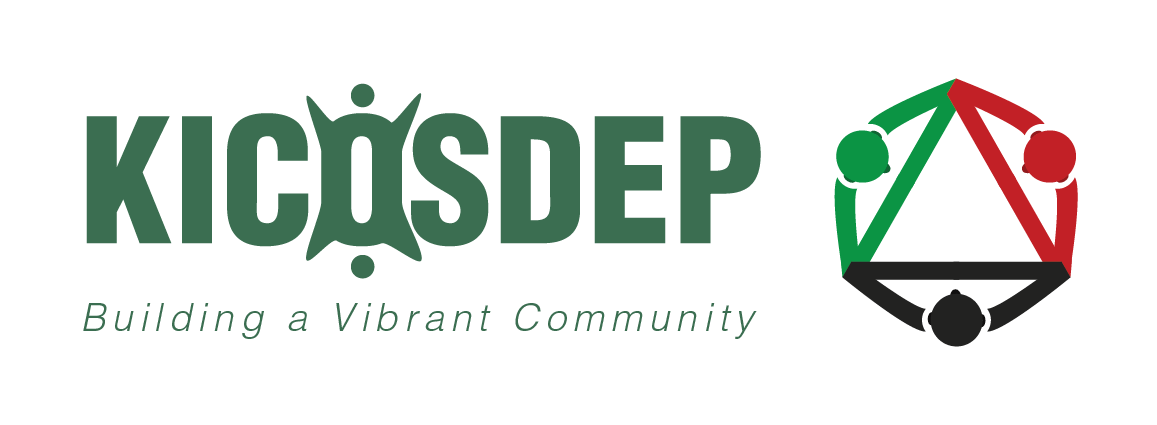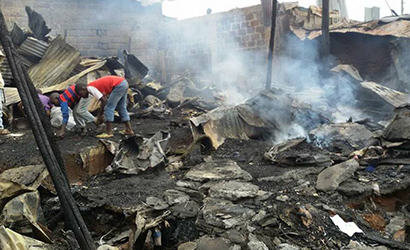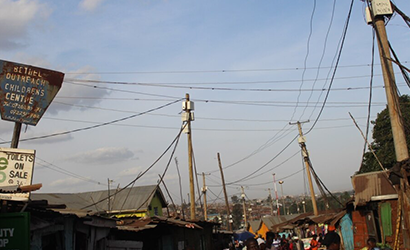Godliness
God is the center of everything. He and His Church will be the focal point and physical centre KICOSDEP
Compassion
We are passionate about loving and meeting the needs of the underprivileged children of Kenya in the name of Jesus Christ.
Integrity & Accountability
We are committed to integrity and accountability in all we do.
Communication
We believe that effective communication is our backbone that helps in sending signals to every part of this organization.
Teamwork
We believes that teamwork is the only way of achieving our goals
ABOUT US
KICOSDEP was founded in the year 2001 by Pastor Amos Kagwetha as Kibera Kids bible and sports Club under the Nairobi Christian Outreach Centre ministry to mitigate this need which resulted to cases of child labour among other abuses. We are duly registered as a Community-Based Organization (CBO) by the Ministry of Labour and Social Protection.
We stand to fight poverty, hunger and ignorance by feeding and providing quality education to every orphan, vulnerable, destitute and needy child in Silanga Village and its environs in Kibera slums in Nairobi Kenya living below Poverty line as stated in the United Nations Sustainable development goal number 1, 2 and 4.
At Kibera Community Slum Development Program, we are committed to enhancing the lives of Silanga village community members in the greater Kibera slum through our wide range of activities, services and events. Over the years, we have been recognized as one of the leading community programs and go the extra mile to make sure our community members are happy with our services.
Ever since opening our doors in the year 2001, we have provided the Kibera slum community members the chance experience what we’re all about. Our mission has always been to provide a cultural and educational experience for orphan and vulnerable children from Silanga village community in the Kibera slum and its environs and we’ve done everything we can to achieve this goal to this very day.
The need for feeding and education is increasing every day in the Kibera slums. This is due the fact that many children in Kibera slums are still out of school due to lack of adequate educational facilities in the slums. Even though education is supposed to be free in Kenya and every Kenyan child have the right to the same, Kibera children has not benefited a lot from this due to the fact that there is no single government sponsored public school within the Kibera slums. Parents in this community practice uncontrolled birth and unprotected sex that has also contributed to the high rate of HIV/AIDS transmission and related deaths that leaves many children orphaned and vulnerable with no one to take care of their education, daily meal, clothing and Shelter.
ABOUT KIBERA SLUMS
Kibera is within the city of Nairobi in Kenya.There are approx 1.2 million slum dwellers in the Kibera in an area of 2.5 square kilometres living below the international extreme poverty line of $1.25 a day as defined by the World Bank. 75% of the population of Kibera are under the age of 18 and 100,000 children living here are orphaned and vulnerable children. It is the biggest slum in Sub Saharan Africa and the slum environment is degrading and dehumanising, characterised by extreme abject poverty and contagious diseases due to environmental pollution and degradation. The majority of the slum dwellers are reduced to begging due to lack of employment and opportunities to earn a living for individual wellbeing or provision of their families.
LAND OWNERSHIP
The Government owns all the land. 10% of people are shack owners and many of these people own many other shacks and sub-let them. All the rest are tenants with no rights.
HOUSING
The average size of shack in this area is 12ft x 12ft built with mud walls, screened with concrete, a corrugated tin roof, dirt or concrete floor. The cost is about Ksh 700 per Month (£6). These shacks often house up to 8 or more, many sleeping on the floor.
THE POPULATION
All the people are African. The original settlers were the Nubian people from the Kenyan/Sudanese border – they now occupy about 15% of Kibera, are mostly Muslim and are also mostly shack owners. The other shack owners are mostly Kikuyu (the majority tribe in Nairobi) – although in most cases they do not live there but are absentee landlords. The majority of the tenants are Luo, Luhya and some Kamba – these people are from the west of Kenya. There are many tensions in Kibera, particularly tribal tensions between the Luo & Kikuyu, but also between landlord and tenant and those with and without jobs.
ELECTRICITY
Only about 20% of Kibera has electricity. UN-Habitat is in the process of providing it to some parts of Kibera – this will include street lighting, security lighting and connection to shacks (this costs Ksh 900 per shack, which in most cases is not affordable).
SEWAGE
In most of Kibera there are no toilet facilities. One latrine (hole in the ground) is shared by up to 50 shacks. Once full, young boys are employed to empty – they take the contents to the river. UN-Habitat and a few other agencies are trying to help and improve this situation but it is painfully slow, because of this many Kiberans use the flying toilet. The flying toilet involves a person deficating in a plastic bag and tossing it through the air at night. Most sewage runs downhill in open trenches, resulting in stagnation and pooling problems that breed insects and odour.
WATER
Until recently Kibera had no water and it had to be collected from the Nairobi dam. The dam water is not clean and causes typhoid and cholera. Now there are two main water supply source into Kibera, one from the Nairobi county government and one from the World Bank. Residents collect water at Ksh 5 per 20 litres. Many residents set up buckets to collect rainwater from their roof when it rains, the hazards this water contains are too many to mention and produce highly contaminated water.
UNEMPLOYMENT
Kibera is near the industrial area of Nairobi where up to 50% of the available workforce is employed (usually in fairly unskilled jobs). However, there is still an unemployment rate of 50%. This is why the training and teaching of skills is very important.
MEDICAL FACILITIES AND HIV/AIDS CLINICS
In Kibera, there are no government clinics or hospitals. The providers are the charitable organisations: AMREF, MSF, churches plus some others. They do a great job. All people are encouraged to have a free HIV test and if positive to take free generic ARV medicine.
CHANGAA /ILLICIT DRINKING
This is cheap alcoholic brew. It is widely available, very strong (over 50% alcohol) and made incorrectly, so is usually very high in Methanol. The cost is only Ksh10 per glass and after a couple of glasses people become very drunk. With over 50% unemployment in Kibera many start drinking early in the morning leading to problems of violence, crime, rapes etc. Cheap drugs and glue sniffing are an increasing problem. Initially taken to alleviate boredom but then people find themselves hooked. A big challenge to the charities!
ABORTION
Due to many men still not using condoms and the availability of Changaa, many girls become pregnant, at any one time about 50% of 16 to 25 yr old girls are pregnant. Most of these pregnancies are unwanted, resulting in many cases of abortion. This can be very dangerous, particularly in such a poor area as Kibera. Many charities are working on this problem.
SPORT AND RECREATION
Majority of young people in Kibera are naturaly talented and gifted in Sports and recreation. Since most of them have nothing to do while in the slums, they have chosen to take part in sports or recreational activities which may be another way for them to earn a living. The biggest problem is that there are no enough open spaces for sports and well equipped recreational facilities for their use.
















